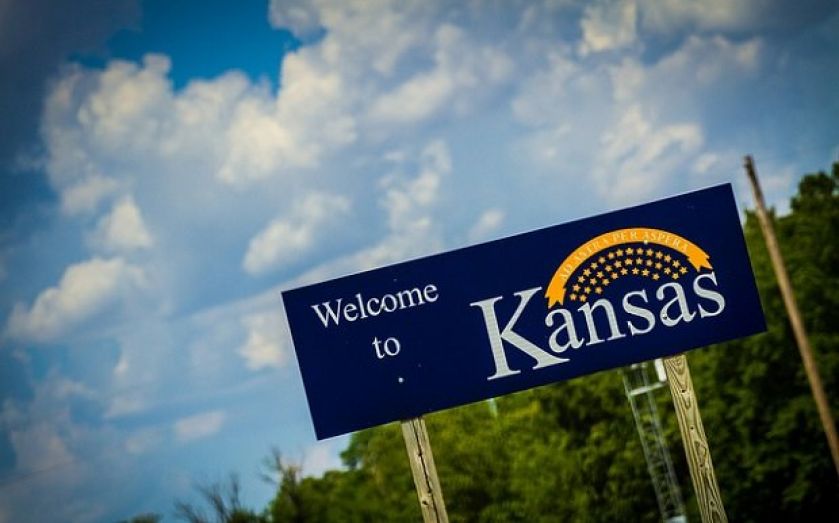US tax battle: Kansas more complicated than critics condemn it for

A heated tax battle is brewing in Kansas that could have major implications on future fiscal reforms throughout the United States. After Gov. Sam Brownback and the Republican-controlled State Legislature passed reforms lowering income tax rates among other tweaks to the code, critics are raising alarms about declining revenues. So, “What’s the Matter With Kansas?,” to borrow the famous question by Thomas Frank. The answer is more complicated than both sides of the aisle make it out to be.
Over the past two years, Kansas has passed a pair of tax reform packages that are scheduled to phase in over six years, with full implementation scheduled in 2018. First, the reforms decreased both of the state’s two income tax brackets. Earnings under $30,000 were lowered from three per cent to 2.3, and earnings over $30,000 were lowered from 4.9 per cent to 3.9 per cent.
Second, the sales tax was amended to 6.15 per cent starting July 2013 from its previous rate of 6.3 per cent. Although this change appears as a cut at first glance, it’s not considering the rate was previously scheduled to drop to 5.7 percent. Third, the reforms made a number of minor changes such as reducing the value of itemised deductions, decreasing standard deductions for married individuals filing jointly and heads of households, restoring the low-income food credit, and ending a itemised deduction for gambling loss.
Finally, the reforms eliminated taxes on pass-through income from supposedly “small businesses” such as limited liability companies (LLCs), S corporations, partnerships, farms, and sole proprietorships. This last change would later prove to be critical to the current debate. In short, the reforms were a mixed bag of cuts and hikes that were expected to modestly reduce revenue yet attract new economic activity. Although nowhere near perfect, the reforms were generally embraced by the center-right in Kansas and across the country, especially for its attempt to facilitate a friendlier business climate in a state surrounded by competitors like Texas and Wyoming, who levy no individual or corporate income tax.
Unfortunately, the reform’s results are not quite what the state was expecting so far. As Josh Barro explains in a recent New York Times article, Kansas receive $369m of tax revenue in April and May of this year — a whopping $282m below the $651m it was expected to collect. Meanwhile, the state’s job growth continues to lag behind the national average.
Brownback loyalists point the finger at the federal government, which raised the capital gains tax in 2013. As Will Upton of Americans for Tax Reform points out, the Congressional Budget Office itself hypothesized that “higher-income taxpayers, anticipating changes in tax law, realized more income in 2012,” leaving states like Kansas with inaccurate revenue projections for forthcoming years.
Meanwhile, critics on the left like Barro point to the reform’s pass-through income exemption as a major source of the problem, speculating that companies could be converting to a different form of enterprise like an LLC to avoid taxation. They contend that this is a dangerous loophole because big firms can disguise themselves as “small businesses” with a little legal work and avoid taxation altogether. In fact, firms with over $10m in revenues account for 60 per cent of pass-through revenues, according to the Tax Policy Center’s Don Marron.
While the heated debate continues, both sides may be right. There’s no denying that the federal government’s capital gains tax hike had an effect on revenue collection as CBO readily admits to. Yet, at the same time, the state’s shoddy exemption of pass-through earnings unquestionably encourages individuals to take advantage of the new loophole. In fact, several center-right reform advocates pointed out the perverse incentives in 2012, such as the Tax Foundation.
Yet, one state’s small mistake doesn’t disprove the value of tax reform altogether, as alarmist critics like Vox’s Andrew Prokop would have the public believe with headlines like “Kansas was supposed to be the GOP’s tax-cut paradise. Now it can barely pay its bills.” Economic evidence proves that states with lower taxes and spending grow faster on almost every metric imaginable — gross domestic product, population, employment, and personal income. The lesson for states moving forward is not to avoid tax reform, but rather to ensure that their tax base is broad enough to avoid loopholes like in Kansas.